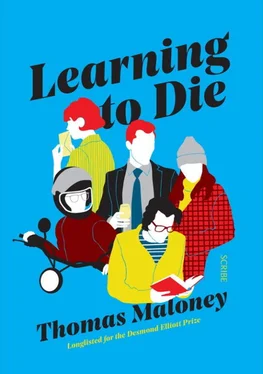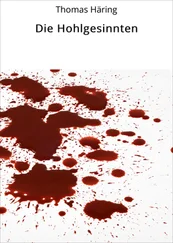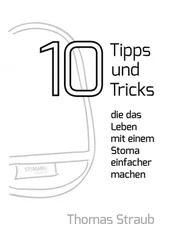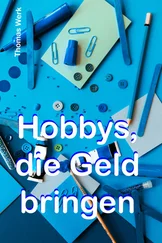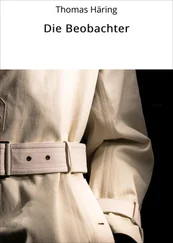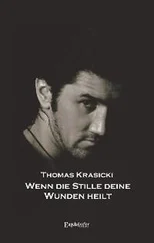Mrs Peacock has given James a vase of cheap flowers to brighten his desk, and he is sitting staring at these, tonguing a mouth ulcer and recalling Lawrence’s ‘Odour of Chrysanthemums’, when his phone buzzes and makes him jump. It’s Brenda. Hi. I have a computer now. Connection is slow but maybe we could catch up by video? Might be fun xxx
James is submerged in a reverie so deep and viscous that he has to read this through several times, but as he finally surfaces his heart burns for those three little xs. He has, of course, no internet in his room or on his phone. He imagines sitting in a quiet corner of Whitby library, angling his laptop screen away from the toddlers and grannies, sound switched off, while Brenda teases him, stripping to that lycra underwear of hers that looks like a running outfit, sticking her sporadically-pixelated arse in the camera. Oh god, it would be torture — furtively hunched with his trousers like a tee-pee. He has to see her.
He’s been putting it off. He can’t decide whether Project Q has run its course or whether it has more to give. But after this message arrives he surprises himself by writing a paragraph of unsurpassed elegance. Heaving with intensity, yet technically flawless. Lawrencian.
Over Christmas, Natalie Mock’s curiosity regarding her ex-boyfriend was dimmed by worries about Dan’s health. But he seems almost back to normal. He’s lost a little weight, perhaps, and still has that odd limp. But it’s hardly a limp — just a slight stiffness in his leg. He doesn’t have any family history of those horrible illnesses. She has a hunch he’s just overworked, and is going to be fine.
So curiosity about her ex was dimmed, but not extinguished. She remembers the moment when their two futures, previously assumed — by her, at least — to be indivisible matter, revealed themselves as distinct. He’d borrowed some money — eighty pounds, to be precise — and she’d asked for it back. He explained at length why money isn’t real. She said, that’s fascinating, but I’d still like it back. He talked, but no wallet emerged. Nowhere, she realised at that moment, was it decreed that she must spend her life with a man disinclined to grow up. This man, she thought, will hinder my dreams.
Ah, yes: her dreams. She teamed up with Dan instead — older, more reliable, more supportive. She got her degree. Before her master’s she needed a year in industry, but struggled to find a job — the jobs were in London, and Dan was in Sheffield. She got some short placements, then answered a graphic design ad just to pay the rent. Then Dan turned down his postdoc offer in Sheffield to accept one in Bristol. Just like that. More relevant, he said. She made a late application to Bristol, was advised to get more professional experience. Somehow, Plan A retreated behind blurry obstacles, and Plan B presented itself: a large aid organisation. A steady job with the feel-good factor.
She has one life, one chance, and for reasons she cannot precisely recall she’s following Plan B.
‘Mr Mock. Please take a seat.’ The phone call came at work this afternoon. Would he be able to come right over. Dan sits silently, but can feel his heart thumping. He folds his shaking fingers decisively in his lap. Here it comes.
‘I have the results of your tests here, and I’ve discussed them with several colleagues.’ Not just young Doctor Dan’s word on this. ‘We all agree they are conclusive. I’m afraid you are going to have to make very serious adjustments to your expectations of your future life.’ Before he even finishes the sentence, Dan has begun to make exactly those adjustments. Reductions. Everything must go. ‘The tests indicate that you have amyotrophic lateral sclerosis.’ He silently extracts the acronym from this heavy bundle of syllables. ‘This is more commonly known as motor neurone disease. Have you heard of motor neurone disease?’
‘Yes.’
‘Do you understand what this means?’
It means I’ll talk like a satnav. Head tipped forward, moist lower lip projecting. Commanding rapt attention. It means I’ll have to become a theorist if I want to keep working. Inhabit a world of mathematics. I could write books. I might live for decades. I might have a cameo in The Simpsons .
‘It means I’m going to die.’
‘Yes. I’m afraid so. It’s a terminal condition for which there is currently no cure. I’m very sorry. But we don’t know how long it will take. You could live for many years. Or just a year or two.’ A year. Or two. As though it doesn’t matter which. Perhaps it doesn’t.
‘This will take some time to sink in,’ adds Doctor Dan, his voice the voice of God. He’s rehearsed. Dan might even be his first. There’s a half-drunk mug of coffee on a shelf beside his desk, its slogan discreetly turned away. ‘There is no rush. I would advise you not to make any major decisions or life changes immediately. Take some time. Try to be open with family and friends and seek their support. We’ll schedule two follow-up appointments, and I’ll give you the details of some excellent organisations.’
Take some time. Time just became a scarcer resource. But in these first scarcer minutes Dan feels an unexpected lightness of spirit. Now that his future has been taken away from him, he realises what an insubstantial thing it was. A question mark. A blank sheet of paper now tossed in the flames. He was going to die anyway.
‘If there are any experimental drugs,’ he says, coolly, ‘blind trials, that sort of thing, I want to be on them. Even if I get the placebo.’ The doctor looks surprised.
‘Yes. Of course.’ His eyes fall on Dan’s helmet and gloves. ‘You’ll be alright riding home?’
‘Why wouldn’t I be?’
In the hospital car park he passes a young family — harried mum in charge, useless-looking, well-intentioned dad, sleeping baby in a pushchair, solemn toddler riding on the back. Children. Not for him, after all. Probably for the best, that he and Nat haven’t got round to it. A clean break. For them both.
He climbs into the saddle, still calm. Checks his watch. He should go straight home — Nat will be home before him — but he doesn’t want to go straight home. He wants to ride. Be alone with this thing. Talk to it. Get to know it. Alone, he’s not afraid of it.
But he imagines Nat at this precise moment, perhaps waiting at the pedestrian crossing and chatting to an old lady she recognises, or just home, skimming through the junk mail she found on the doormat. Optimistic, unaware. This vision conjures a sadness more crushing than any other he’s felt. A parade of images follow: Nat helping him out of a chair; Nat — his proud, beautiful Nat — spooning food into his mouth; Nat unable to make out what he’s trying to say. It’s now that he feels his face twitch, his eyes prickle with tears. He has to go home.
On the twenty-minute rush-hour journey, he sees laughing children everywhere. Dads. Grandads. Old men. The world has changed.
‘Alumni office. Martha speaking.’ Natalie takes a breath.
‘Hi. I wonder if you can help me. I’m trying to trace one of your alumni. I’m an old friend but we’ve lost touch. I thought you might be able to look him up on your system.’
‘I’m afraid that wouldn’t be possible,’ says Martha, with exaggerated sympathy. ‘We can’t give out any personal information.’
‘Right. I thought you might say that.’ Stupid idea in the first place. Finito.
‘Have you tried social media — mutual friends, that sort of thing? You can find almost anyone these days.’
‘Yes, I’ve tried. Oh well. Thanks for your time.’
‘Wait a moment.’ Martha is the sort of girl who wants to help — a problem-solver. ‘This is a little off-piste, but if you give me your own name and contact details, and your friend’s name and their graduation year, I could try to contact your friend, and ask if he wants to be put in touch. You did say he was a he, didn’t you? That’s the best I can offer you.’
Читать дальше
